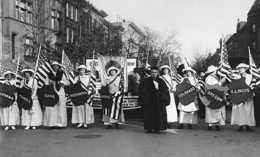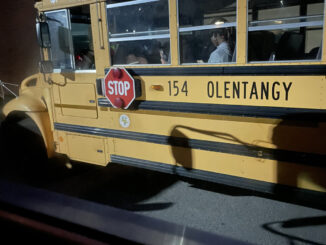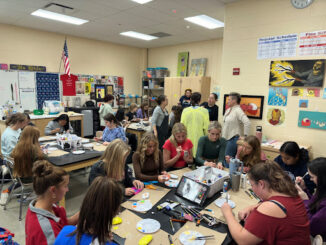
permission to print image: Gale
The 19th Amendment became law on Aug. 26, 1920, and women gained the right to vote without being discriminated against because of their sex. However, minority women, especially Indigenous and African Americans, continued to be discriminated against because of their race. According to PBS, not all women were able to vote until the Voting Rights Act of 1965 was passed, which stated that no one could be racially discriminated against when voting.
This year marks the 100th anniversary of the 19th Amendment becoming law. Some people don’t realize that the fight for equality did not happen overnight, and some women fought their whole lives for the right to vote.
“It’s important to remember that women fought for this – they had to make sacrifices in order to be treated as full citizens,” Sociology teacher Leslie Hosgood said. Women were beaten, arrested and went on hunger strikes. It was not necessarily a fully peaceful movement that was supported in American history.”
The goal of the movement was to change how women were viewed in society. They were discriminated against in workplaces and politics and were seen as incapable of doing work that men were doing.
“Although white women were granted this power, women’s participation in politics lagged behind men’s and there was also a backlash in this progress. Not everyone valued the voices and contributions of women outside the home and fought to keep women as second-class citizens,” Hosgood said.
Women are more respected and appreciated now but are sometimes still seen as objects and not actual people. When it comes to women and their bodies, it’s not a place for men or other people in general to have a say in it.
“Women’s suffrage is still relevant to this day because our right to vote is an important part of our lives as women. Things such as whether abortion should be legal or not and Planned Parenthood include the right of our own bodies. We need to be able to stand up for what we believe in,” sophomore Aahana Bhadbhade said.
To commemorate this milestone, the choir is holding a virtual concert titled “Justice, Peace, Hope: A Concert for Healing”. The Women’s Advanced Choir will be presenting a piece that comes from the quote “Courage Calls to Courage” from Millicent Fawcett who is a British activist for the Women’s Suffrage movement.
“As crazy as the times are, we’re trying to make more of a statement about what we’re doing. Normally for a choir concert, you show up and then it’s over, but this is more like something we put together with quotes and pictures and it has more of a message,” choir director Cheryl Brooks said.


